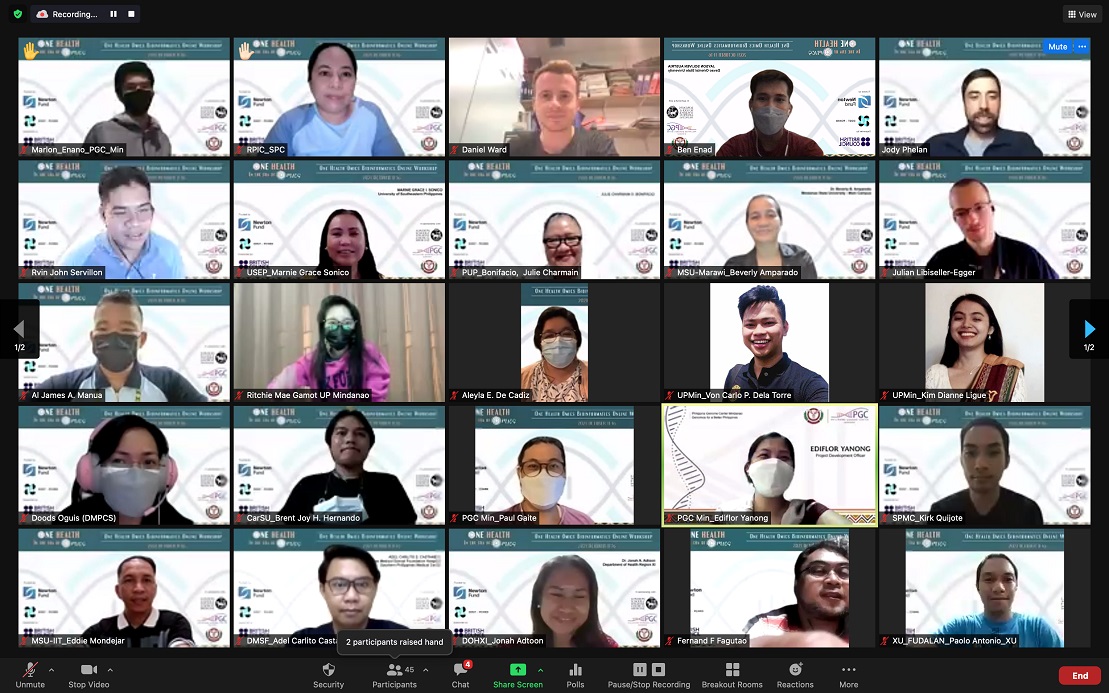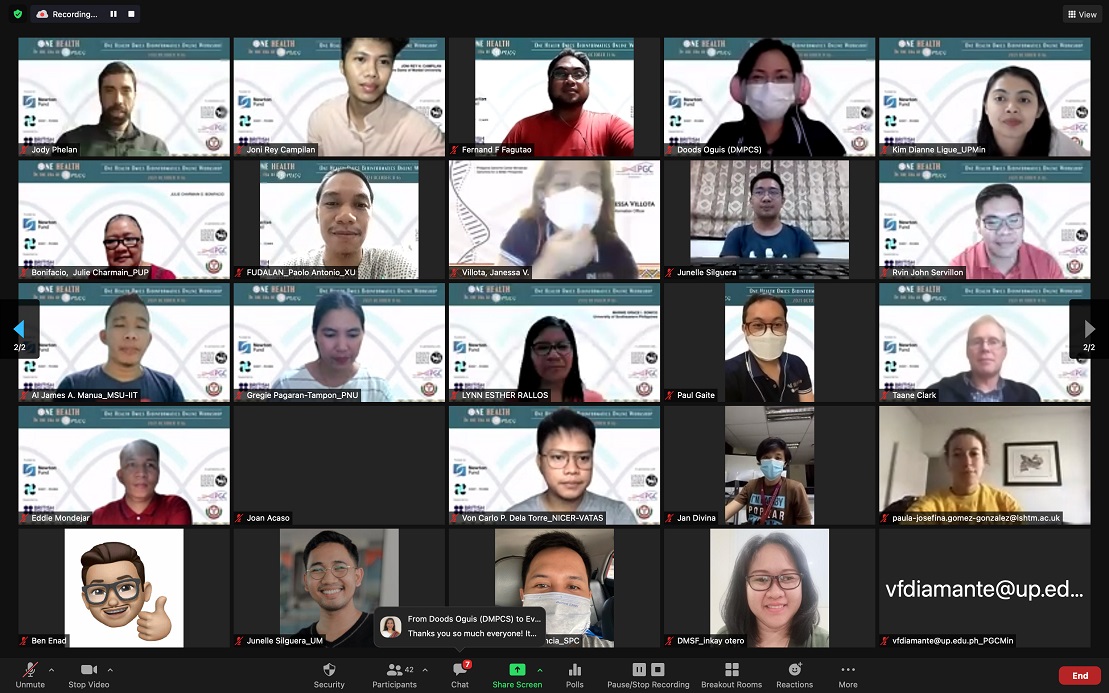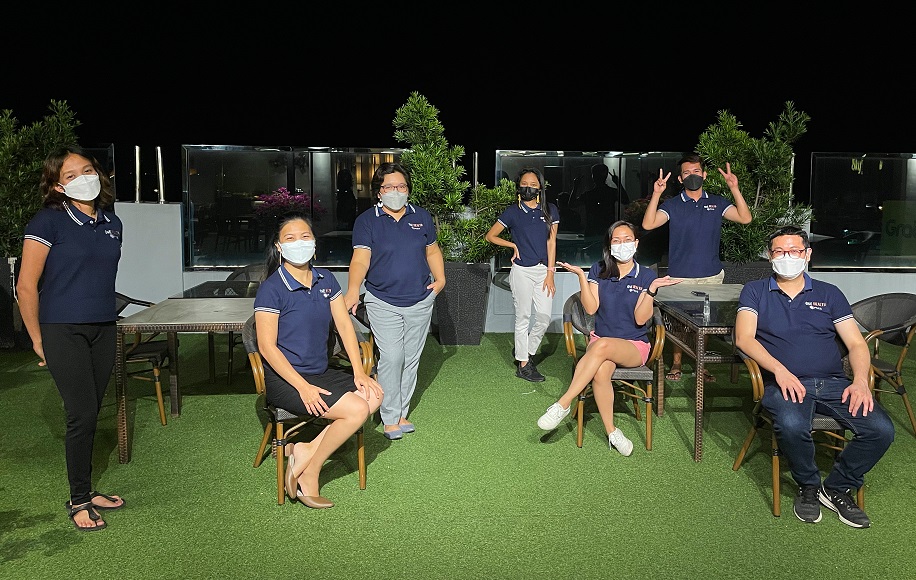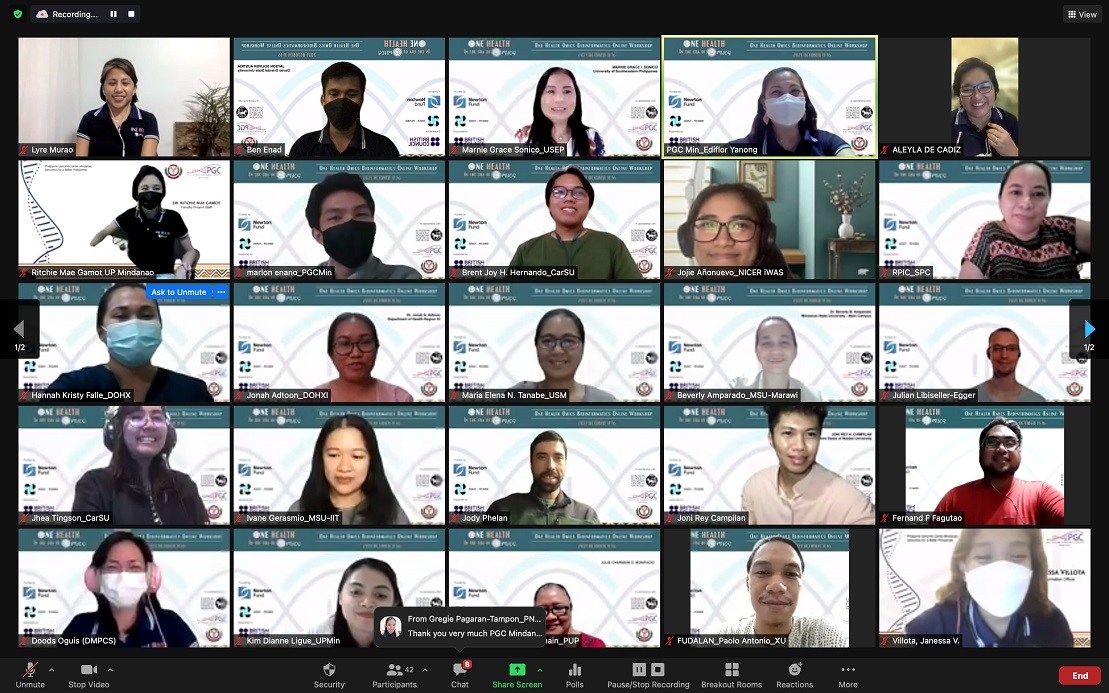The University of the Philippines Mindanao (UPMin), in collaboration with the London School of Hygiene and Tropical Medicine (LSHTM), UK, has successfully completed the One Health Omics Project, a week-long free online bioinformatics workshop from October 11-16, 2021. Out of 124 applicants, only 40 were shortlisted to participate in the workshop composed of faculty members, clinicians, and researchers from different regions in Mindanao. In the opening ceremony, Dr. Aleyla De Cadiz, Project Leader of One Health Omics, said that the workshop serves to capacitate Filipino researchers in Mindanao on omics technology in the surveillance, management, and control of infections in a One Health setting.
“We want to expose Mindanaoan researchers to bioinformatics tools and techniques which can be helpful in their research focus and future research endeavors in the region,” she said.
Bioinformatics is a combination of biology and information technology that allows researchers to use a computer to further examine and understand the characteristics of an organism or a microbe through its genome, such as the SARS-CoV-2 virus responsible for the COVID-19 disease.
Today, bioinformatics algorithms made it possible to quickly assemble the genome sequence of the coronavirus which helped scientists to quickly develop diagnostic test kits and give an immediate head start in vaccine development.
The bioinformatics workshop was facilitated by Dr. Jody Phelan, Julian Libiseller-Egger, Daniel Ward, Anton Spadar, and Paula Josefina Gómez González, bioinformatics experts from LSHTM, all members of Professor Taane Clark’s team.
Dr. Phelan, one of the lead trainers expressed his willingness to help and assist the participants beyond the workshop activity. He encouraged the young Filipino researchers to keep on doing the materials in their own time. Dr. Phelan also looks forward to conducting face-to-face training soon. “I would love to meet everyone face-to-face so let us hope that the situation improves and that we can travel.”
The workshop proved to be very challenging to the participants given that bioinformatics is a new learning field in health research, but they were grateful to have been introduced to its concepts and applications.
“The workshop gave us the technical experience and knowledge in handling datasets in different omics approaches. This will be very useful to a researcher like me who is interested in doing omics approach studies,” said Vanessa Joy Diamante, a researcher at the Philippine Genome Center (PGC) Mindanao.
Joseph Mari Querequincia, a registered pharmacist and faculty member of San Pedro College Davao, said he was grateful to have been included in this training course.
“The workshop allowed me to warrant a skill for Bioinformatics in which I could utilize for future academic and research undertakings related to pharmacogenomics and drug discovery,” said Querequincia.
Meanwhile, Dr. Jonah Adtoon, an Internal Medicine Specialist at the Department of Health (DOH) XI declared her willingness to be involved in more clinical research projects in the omics field for disease investigation and patient management.
Professor of Genomics and Global Health in LSHTM and the lead United Kingdom (UK) coordinator Prof. Taane Clark said that the skills learned during the workshop will allow the participants to apply big data methods to genomics questions and investigations.
"Bioinformatics and genomics techniques, as well as conducting related molecular investigations, are important skills for the participants to become genomics and genomic epidemiological experts and will contribute to improving the health of the Philippines population. Some of the trainees in our previous workshops are now trainers in bioinformatics, and it is very exciting and personally rewarding to be part of capacity building and strengthening in genomics, and contribute to ongoing Philippines-UK biomedical collaborations," he said.
In her message, PGC Mindanao Program Director Dr. Lyre Anni Murao recalled the first workshop conducted by LSHTM at PGC in Diliman and its influence on the establishment of PGC in Mindanao.
“The workshop played a pivotal role in establishing our facility, because without a background on omics we wouldn’t be able to take PGC Mindanao to where it is right now, so thank you very much for sharing your skills and expertise,” she said.
The workshop was made possible through the PGC Mindanao team of Dr. Lyre Anni Murao, Dr. Joel Hassan Tolentino, Dr. Ritchie Mae Gamot, Dr. Giovanna Fae Oguis, Ms. Ediflor Yanong, Mr. Jan Divina, Mr. Polo Gaite, Ms. Marian Luayon, Ms. Janessa Villota, and Mr. Ruben Enad, Jr.
The One Health Omics Project was funded by DOST-Newton Agham Researcher Links Workshop grant from the British Council in partnership with London School of Hygiene and Tropical Medicine (LSHTM) and supported by the Department of Science and Technology (DOST) - Philippine Council for Health Research and Development (PCHRD). The workshop is also co-sponsored by the Philippine Genome Center (PGC) Mindanao.
The LSHTM will be having its second run of Online Bioinformatics Workshop on November 22-25, 2021 which will focus on Infectious Diseases. This will be participated by 30 participants from the Philippines and 30 participants from the UK.
# (By JANESSA V.VILLOTA, Information Officer I, Philippine Genome Center Mindanao)
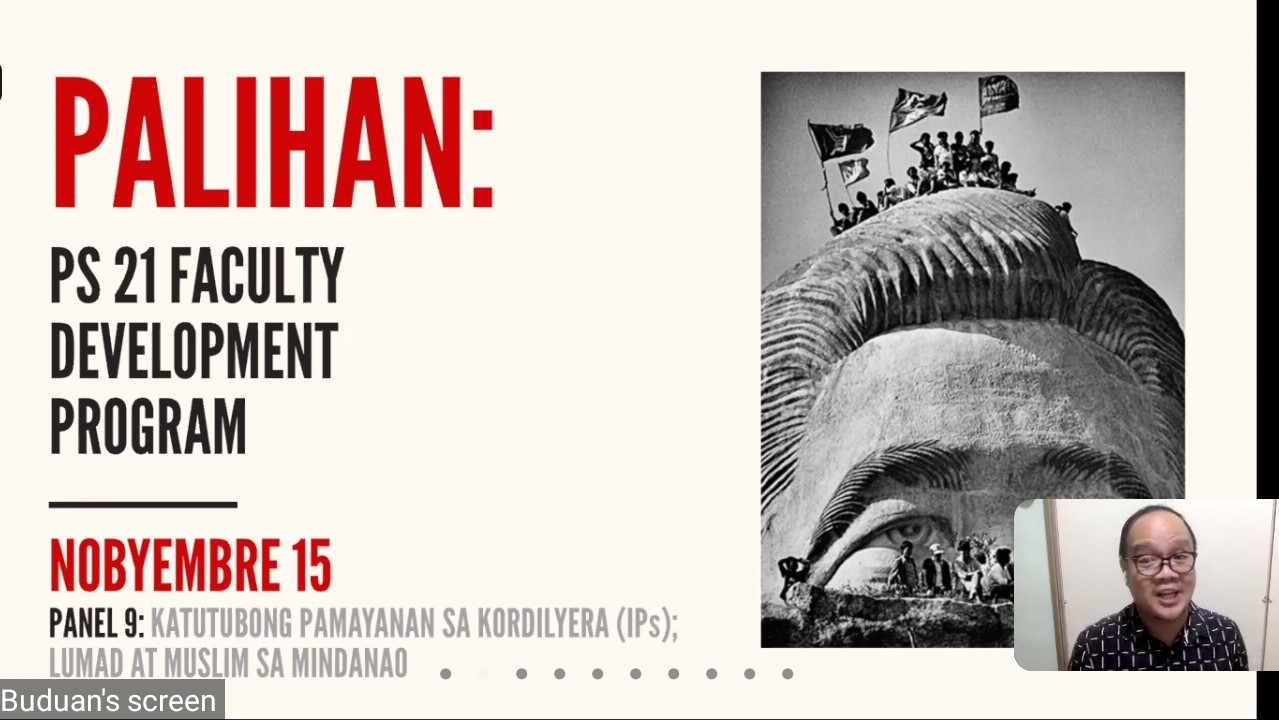

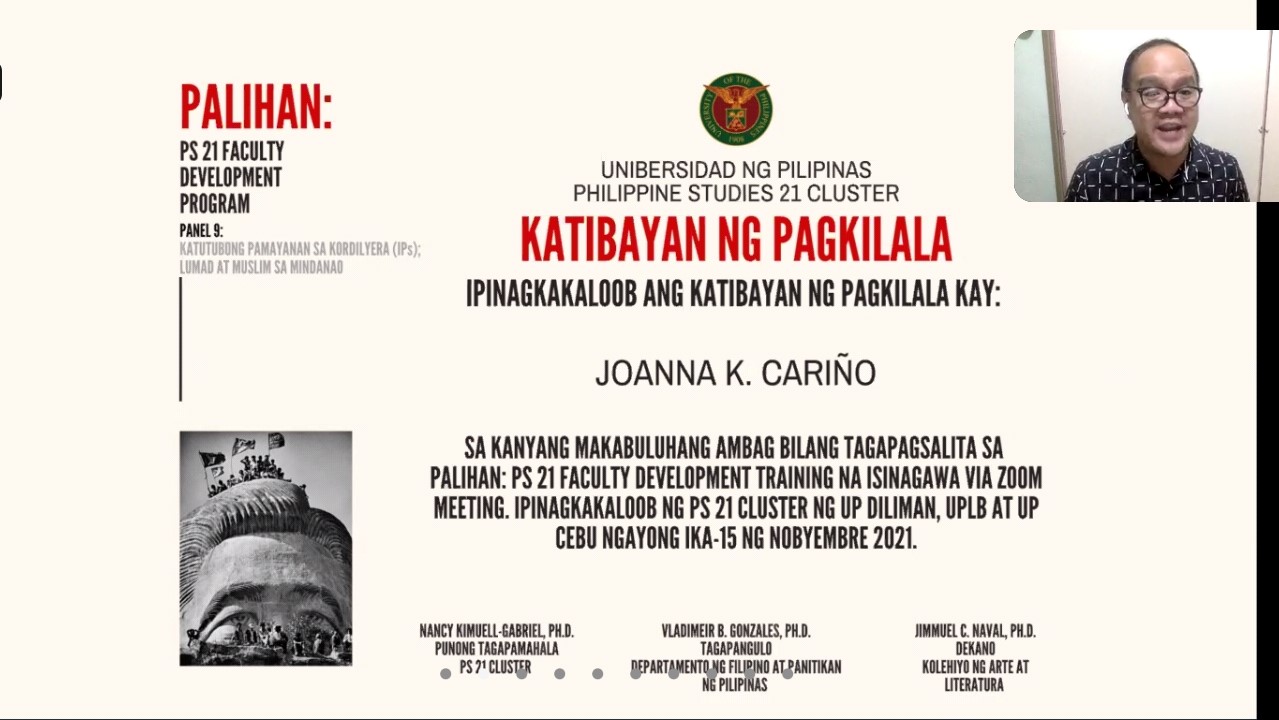
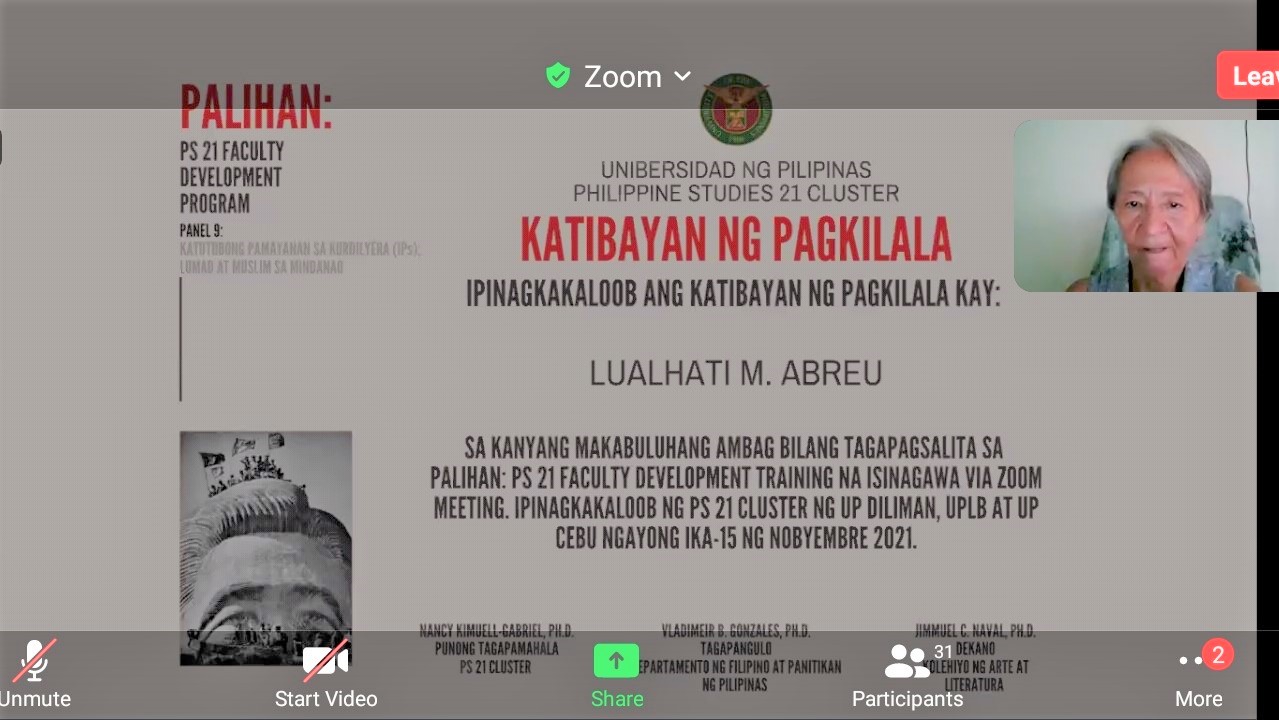


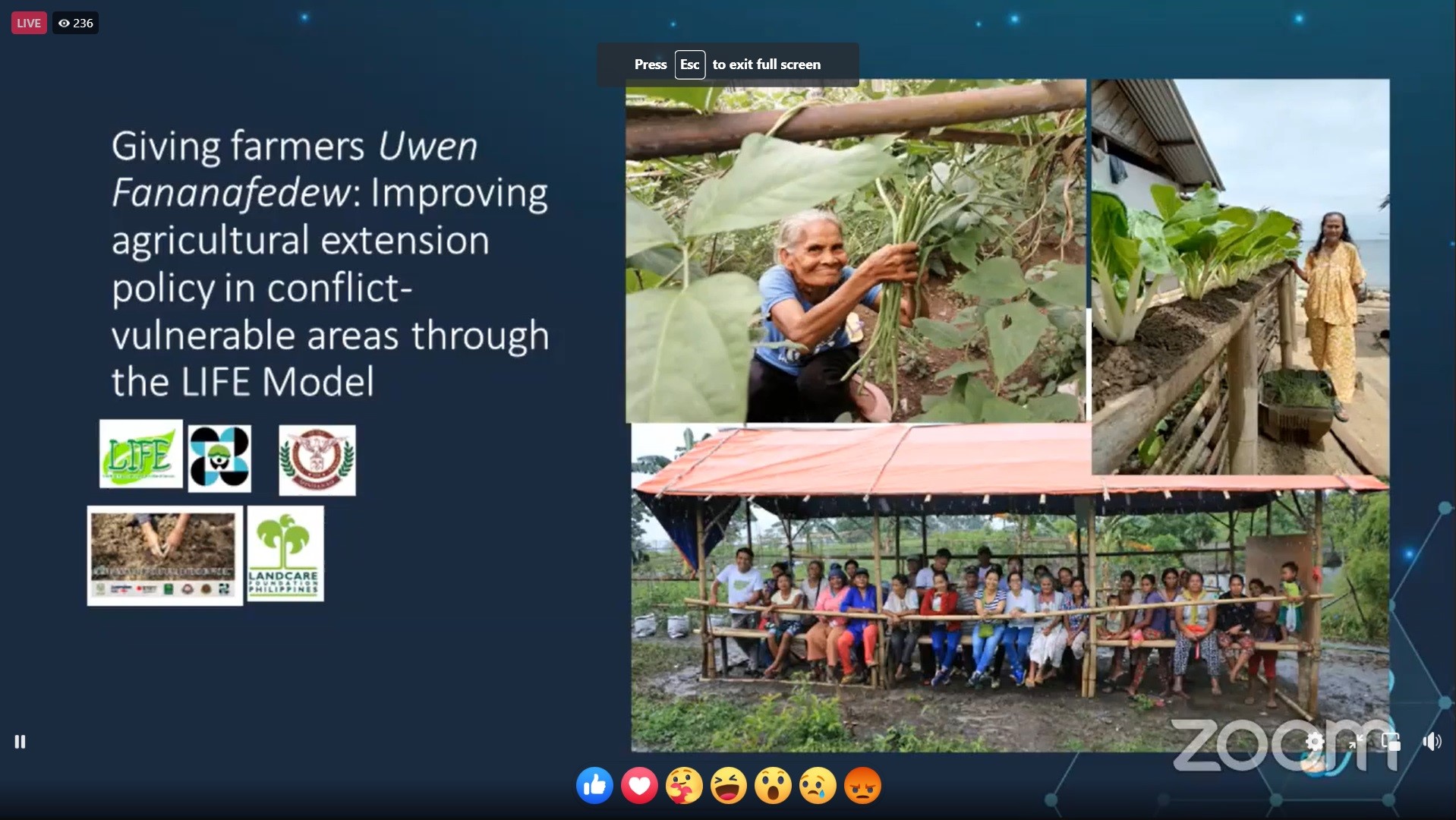
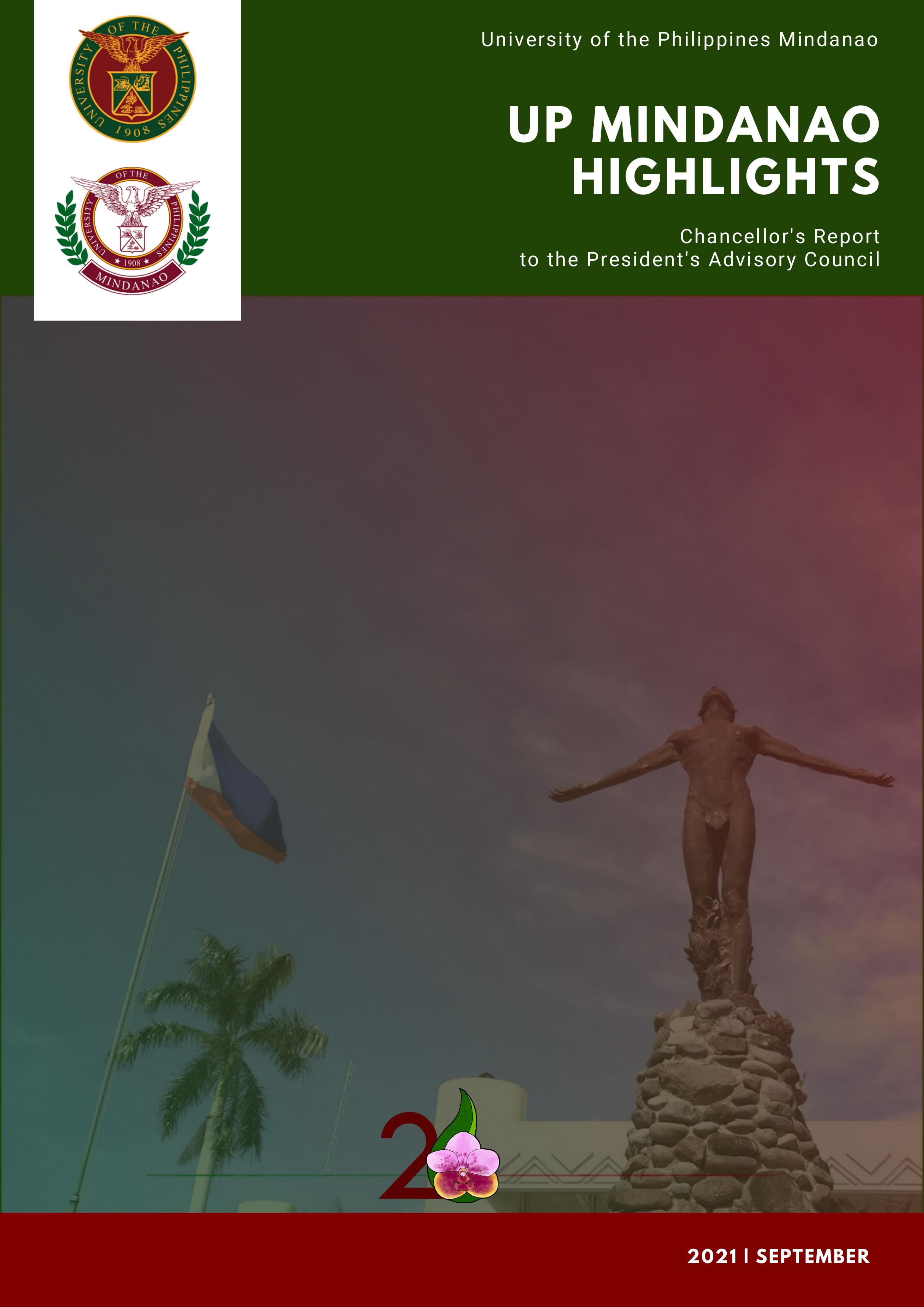 The COVID-19 Tracker (
The COVID-19 Tracker (